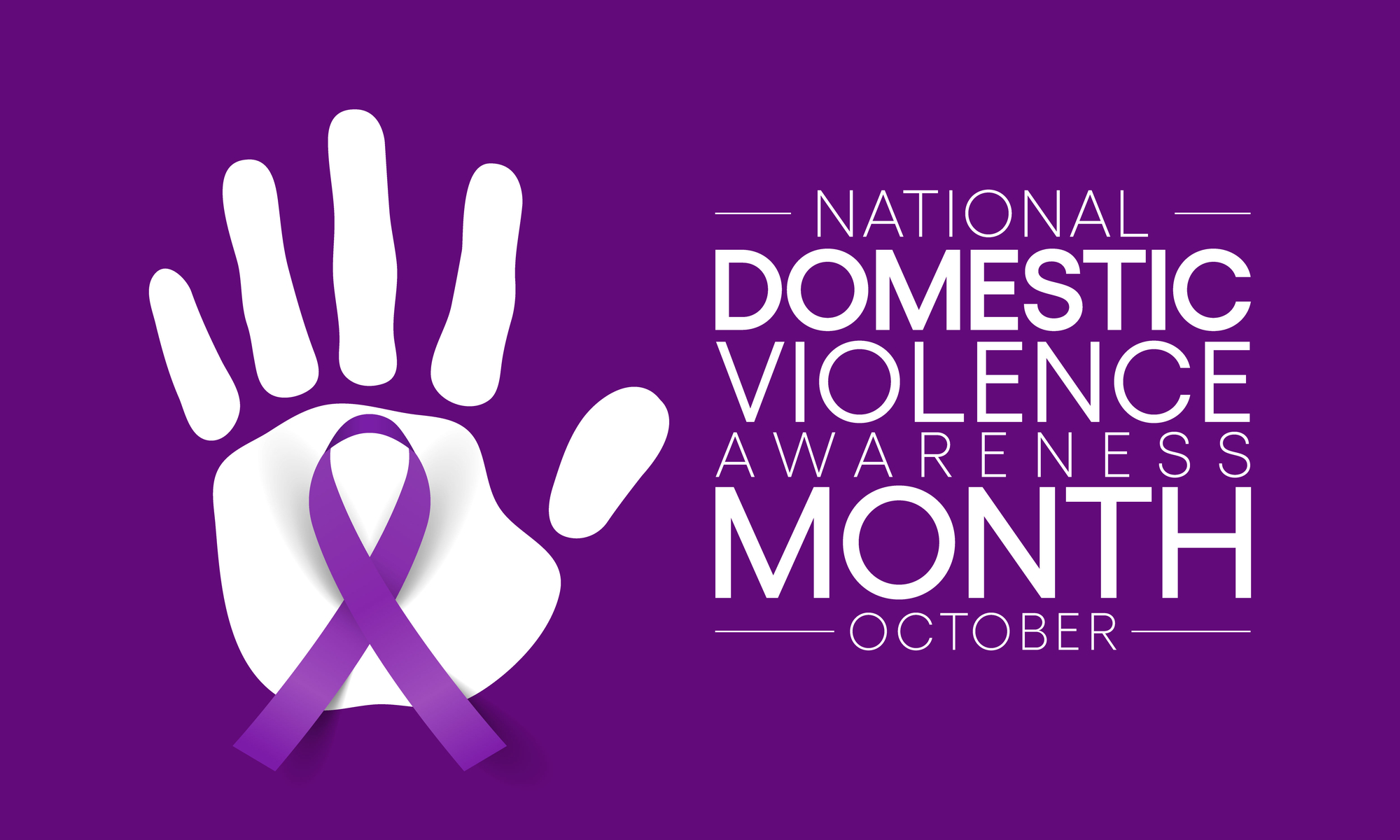Every October is Domestic Violence Awareness Month (DWAM). It evolved from the “Day of Unity” held in October 1981 and conceived by the National Coalition Against Domestic Violence (NCADV). In recognition of DVAM, Wyattevans.com has been presenting a very special series of articles and features throughout this month.
Within the LGBTQ community, domestic violence and abuse is referred to as Intimate Partner Violence and Abuse (IPV/A). This atrocious cycle of behavior is such a critical societal issue because it is more pervasive and frequent than was once believed. And, stigma is key in keeping IPV/A cloaked and enshrouded in darkness.
As a journalist and advocate, I have listened to the horrific and heartbreaking personal stories of IPV/A victims and survivors. And because Intimate Partner Violence and Abuse can be so taboo in the LGBTQ community, I felt that it would be more palatable–and not such a “bitter pill to swallow”–if it were addressed in the form of a work of fiction. That’s why as an author, I pen the popular and well-received “Nothing Can Tear Us Apart” series of novels, which has IPV/A as its overarching theme. “FRENZY!” is the latest installment in the series.
In my national workshops and seminars, I emphasize the following important takeaway: Anyone—and I do mean ANYONE—regardless of size, strength, age, sexual orientation, race/ethnicity and/or income, can become a victim of IPV/A.
This horrendous and vicious pattern of behavior happened to Mr. Tancredo Buff. In my exclusive interview with the popular gay adult entertainer and activist, he opens up and bares his soul about his harrowing experience with IPV/A.
WYATT: Tancredo, welcome to Wyattevans.com! I can’t thank you enough for being part of the month-long recognition of Domestic Violence Awareness Month.
TANCREDO: I’m very happy to do it, Wyatt.
WYATT: So, let’s get started. Just how old were you when you first became a victim of Intimate Partner Violence and Abuse (IPV/A)?
TANCREDO: I was 32, and 6’2” with a slim build.
WYATT: And your abuser?
TANCREDO: He was 28, 5’11”, with a stocky build.
WYATT: Tancredo, if you would, take us through your experience.

TANCREDO: Sure. He and I met one night when my friends invited me to go out. At the time, I had been separated from my partner of six years, and recently finished an on and off relationship with a very insecure individual.
In the beginning, everything was cool. He called me every day to make sure I was doing fine. Sometimes he stopped by my work with lunch. Sometimes, he even showed up at 6 AM to my house with a bouquet of flowers. He was sweet and always said, “I love you.”
However, things started to change when we moved in together. Every time he had a bad day at work and when things were not done his way, he started shouting at and belittling me. I tried to comfort him, but sometimes that made things worse.
And, he was so uncooperative! He’d drink away his share of the rent money.
I remembered one time I was asking him about something, and he replied, “Shut up!” One night, as guests were leaving, an argument erupted between us. I ended up out in the street with just my pants on and no shoes, and no wallet. He locked me out of the house until past Noon the next day.
From that moment on, the love began to slip away, and my desperation to get out was increasing. He always was looking to be forgiven, and I was weak because I thought I was in love with him.
Little did I know that I was being codependent? You see, I gave him all my control. I felt trapped! Many arguments occurred.
There was another time when he tried to repeat the lock-out; but this time, it didn’t happen. I slept on the couch instead of in the bed with him. We didn’t speak for several days. Finally, he apologized.
WYATT: The most telling sign of IPV/A is fear of your partner, that you feel you have to “walk on eggshells” around him. Did you experience that? If so, how did that make you feel?
TANCREDO: I can relate to that. He made me feel like a nobody! Everything was about him and how “famous” he was in town because of his political involvement. I’d lost myself; one time, a friend said something to that effect.
WYATT: You know, abusers employ a variety of methods and schemes to manipulate you and wield their power, which include: Dominance, Humiliation, Isolation, Intimidation, and Threats. Which of these did you experience?
TANCREDO: Dominance and Intimidation were the order in my house. He made sure that everybody recognized him as the head of the house and that I was just a shadow. He was a master of verbal abuse. Once, he tried to hit me; but when he saw I was going to strike back, he stopped.
WYATT: Whoa. Tancredo, oftentimes an abuser uses sex as a ploy to keep the victim in the relationship. Did that happen with you?
TANCREDO: What he did do was force me to have sex. I had to be his bottom.
WYATT: There are three types of IPV/A: physical, emotional, and mental. Did you experience all three? Can you break it down in percentages?
TANCREDO: I would say 1% physical, 50 % emotional, and 49 % mental.
WYATT: Tancredo, what was the “last straw” that pushed you to make your Great Escape, the phrase I’ve coined for my national IPV/A workshops and seminars?
TANCREDO: It was something that happened one week before a planned business trip. As I was on the talking to a friend on the phone, my partner was in a horrible mood. Suddenly, he marched up to me, grabbed my left hand and snatched off a ring that he’d given me for my birthday.
Next, he closed the bedroom door and prevented me from going to my bed. I’d had enough. So, I called a friend to arrange to stay with him until I found my own space. I packed up my belongings and locked them in a room.
He broke the lock and took my bed and several of my things. For a year, I was without a bed—but I didn’t care. I got the hell out and didn’t look back.
Now, there’s a part two to the saga. A year later, he tried to reconcile. Because I wanted to move again, I accepted his invitation to stay; but only with the guarantee that we would never get into another relationship.
However, he thought that because I’d moved in with him, we were actually in a relationship. When he finally realized that that was not the case, he asked me to leave.
So, I packed up and moved to another space. And after that, I emigrated from Puerto Rico to the U.S.
WYATT: Tancredo, too many people still believe that Intimate Partner Violence and Abuse is really not that important, and have the mentality that “boys will be boys.” What’s your take on this?
TANCREDO: They are misguided. If they experienced what I and many others have, they wouldn’t think that way.
WYATT: In order to make your Great Escape, you must truly understand that you deserve help, you need it, and that you can find it. And, it’s important to remember that it’s the abuser who caused you to feel this way and that it’s his/her behavior that’s criminal and unacceptable—not yours. Your thoughts?
TANCREDO: In part, I feel guilty for having allowed it. I did not fully value myself during the relationship, and somehow should have stopped the pattern of abuse from the beginning.
However, I was lucky to not allow it escalate further like other personal stories I have heard.
WYATT: Tancredo, what is the most important, the most critical thing a victim needs to do to escape the abusive situation?
TANCREDO. Telling someone is most important. Silence is the most effective weapon the abuser uses against you.
WYATT: Did you undergo psychological counseling/therapy to accelerate your healing process?
TANCREDO: Eventually, I did. But most of the healing came from within myself, and from the support of friends.
WYATT: What lessons have you learned from your IPV/A experience?
TANCREDO: I learned that if you don’t value yourself, there is no way you’ll have a healthy and successful relationship.
WYATT: Tancredo, what words of inspiration can you give victims still trapped in these abusive relationships?
TANCREDO: Love yourself, grow yourself…and get outtttt!
WYATT: Mr. Buff, thank you for an empowering chat.
TANCREDO: It was my pleasure, Wyatt.
I have made it my ongoing–and fervent–mission to continue to shine a bright light on this demoralizing, horrific, and potentially life-threatening cycle of abusive behavior. We must Rise Up…And Tell! Someone. Anyone Who Will Listen. We must make our “Great Escape.”
And, always remember: the most powerful weapon the abuser has in his/her arsenal is…SILENCE.
If you or someone you know is experiencing IPV/A, call the National Domestic Violence Hotline (1-800-799-7233) or the Gay Men’s Domestic Violence Project Hotline (1-800-832-1901). You can reach Mr. Buff at tancredobuff@live.com.
I have a special IPV/A section right here at Wyattevans.com that lists resources to assist victims. Visit: https://wyattevans.com/lgbtq-domestic-violenceabuse-making-your-great-escape/
The time is NOW to break the cycle!





Leave A Comment